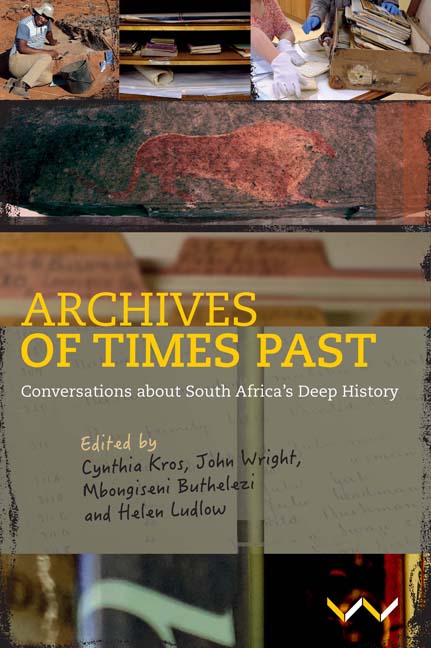Book contents
- Frontmatter
- Contents
- List Of Illustrations
- Acknowledgements
- Editorial Note
- Map
- PART I FIRST THOUGHTS ABOUT THE ARCHIVE
- PART II COMMENTARIES AND CONVERSATIONS
- PART III BECOMING EXPLORERS
- PART IV ENGAGING WITH ARCHAEOLOGY AND ROCK ART
- PART V CONFLICTING OPINIONS
- PART VI FURTHER THOUGHTS
- Glossary
- Contributors
- Index
Chapter 10 - From ‘Nature Study’ to ‘Nature’s Archives’: My Journey into Environmental History
Published online by Cambridge University Press: 26 May 2022
- Frontmatter
- Contents
- List Of Illustrations
- Acknowledgements
- Editorial Note
- Map
- PART I FIRST THOUGHTS ABOUT THE ARCHIVE
- PART II COMMENTARIES AND CONVERSATIONS
- PART III BECOMING EXPLORERS
- PART IV ENGAGING WITH ARCHAEOLOGY AND ROCK ART
- PART V CONFLICTING OPINIONS
- PART VI FURTHER THOUGHTS
- Glossary
- Contributors
- Index
Summary
GROWING UP IN A RURAL LANDSCAPE
I never imagined that I would become an environmental historian. In September 1998, I was awarded a MacArthur Fellowship to study for a doctorate in history at the University of Minnesota, Twin Cities, in the United States. Five years later, I emerged from the MacArthur Interdisciplinary Program with a PhD in environmental history. I also emerged with an abiding interest in the dynamic interactions between people and their physical environments.
Before my PhD studies, I had had no background knowledge in environmental history. But I had been learning important lessons about the landscape, and the destructive impact that people can have on it, when I was still quite a small child.
I was born and raised in Kabvundu village, which fell under Chief Mutumba in the rural Madziva district of Mashonaland Central Province, Zimbabwe (or Rhodesia, as it was still called by colonials). I started school at the age of seven in 1971 at Bradley 2 primary school. My father was a teacher at the same school. He was always respectfully referred to as ‘Ticha’ Mandere. My mother was involved in growing crops of different kinds in the family's fields and gardens, enough to make sure that we always had food to eat. The nearby secondary school belonging to the Salvation Army was referred to as Bradley 1, and the government primary school was known as Bradley 2. I never learnt why the two schools were named this way.
Later – some years after I had left – under the government of Robert Mugabe, the primary school was renamed Nyarukunda after the little river behind the school. The renaming was meant to recognise the importance of indigenous names. The new government wanted to get rid of colonial names for schools and other cultural institutions. I think the school had been built near the river so that it could serve as a source of water for both staff and pupils. Nyarukunda River was therefore an important part of the landscape of Kabvundu village.
Before and during my early days in primary school, I was already herding my parents’ cattle. Often we would let them graze along the banks of the river. Then the villagers started to establish vegetable gardens on the riverbanks.
- Type
- Chapter
- Information
- Archives of Times PastConversations about South Africa's Deep History, pp. 143 - 155Publisher: Wits University PressPrint publication year: 2022



